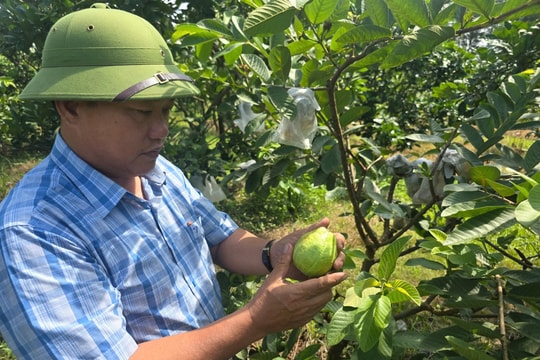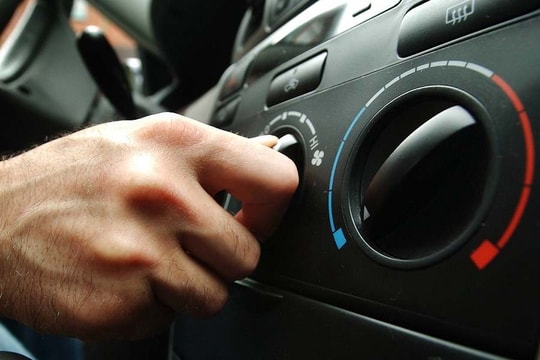Hot weather, beware of meningitis in children
Medical experts recommend that if you notice signs such as fever, headache, vomiting, cough, runny nose, you should take your child to see a doctor immediately.
Meningitis/encephalitis often occurs during hot weather or when changing seasons because many children have respiratory diseases and this is a favorable time for some bacteria and viruses to enter the central nervous system and cause meningitis.
According to pediatricians, this is a serious disease that requires emergency treatment, otherwise it can cause death or leave sequelae such as deafness, blindness, epilepsy, paralysis of limbs...
Signs of meningitis
Fever, headache, vomiting, cough, runny nose… are symptoms of upper respiratory tract infections, viral fever… but can also be signs of meningitis. Therefore, if you notice these signs, you need to take your child to the doctor for timely detection and treatment.
In addition, there are signs suggesting meningitis such as:
Convulsion:It can be in the hands, feet, eyes, mouth or the whole body. Some children have simple convulsions due to high fever or some children have electrolyte disturbances, but it is also necessary to monitor the child for meningitis.
Disorder of consciousness:At first the child is in a state of agitation, then may become lethargic, lethargic, or comatose.
Children often complain of headaches, vomiting, or facial paralysis, paralysis, or reduced movement in the legs, arms, or half of the body.
 |
| Associate Professor, Dr. Nguyen Tien Dung, Bach Mai Hospital |
Associate Professor, Dr. Nguyen Tien Dung, Bach Mai Hospital said: Summer often sees an increase in cases of encephalitis/meningitis due to the development of pathogens. Encephalitis/meningitis can be cured without leaving any sequelae, but the most important thing is that children must be detected early and treated promptly.
Citing an example, Dr. Dung said: “There was a case of a 9-year-old boy who came to the clinic due to a fever, still conscious, only showing signs of severe headache and vomiting, so his mother took him to the clinic. Through examination and test results, he was diagnosed with meningitis, something that few people would have thought of at first.”
Dr. Nguyen Tien Dung recommends that to identify encephalitis/meningitis, parents can observe suspicious signs in children: initially there is a high fever like a common viral fever, but then there is a severe headache, stiff neck, nausea, vomiting (if encephalitis is usually vomiting).
How to prevent meningitis/encephalitis
According to the Department of Preventive Medicine (Ministry of Health), 56 cases of viral encephalitis were recorded in many provinces and cities in April. Since the beginning of the year, the country has had 129 cases of the disease, with 5 deaths suspected of being caused by viral encephalitis, all recorded in April. The number of cases is expected to increase in the summer months when the weather is hotter.
Mr. Tran Dac Phu, Director of the Department of Preventive Medicine, said: "Depending on the agent, viral encephalitis can be transmitted through insect bites, through the digestive tract or through the respiratory tract. Encephalitis virus is common in children under 15 years old, this is also the age group with a high risk of contracting the disease."
Mr. Phu recommends that parents should take their children to a medical facility immediately when they show signs of high fever along with symptoms of damage to the central nervous system such as: severe headache, vomiting; mental disorders at different levels: delirium or lethargy, confusion, coma with convulsions, abnormal movements or paralysis.
The best way to prevent meningitis is to practice good environmental hygiene, keep your house clean, clean your livestock barns to limit mosquito breeding places, move livestock barns away from your home, remove mosquito larvae nests; apply measures to prevent mosquito bites; do not let children play near livestock barns; practice good personal hygiene and ensure food safety.
Particularly for the virus that causes Japanese encephalitis: vaccinating children fully and on schedule is the most important and effective disease prevention measure with 3 basic doses: - 1st dose: when the child is 1 year old; - 2nd dose: 1 to 2 weeks after 1st dose; - 3rd dose: 1 year after 2nd dose. Then, a booster shot is given every 3-4 years until the child is 15 years old./. |
According to VOV
| RELATED NEWS |
|---|







.jpg)
